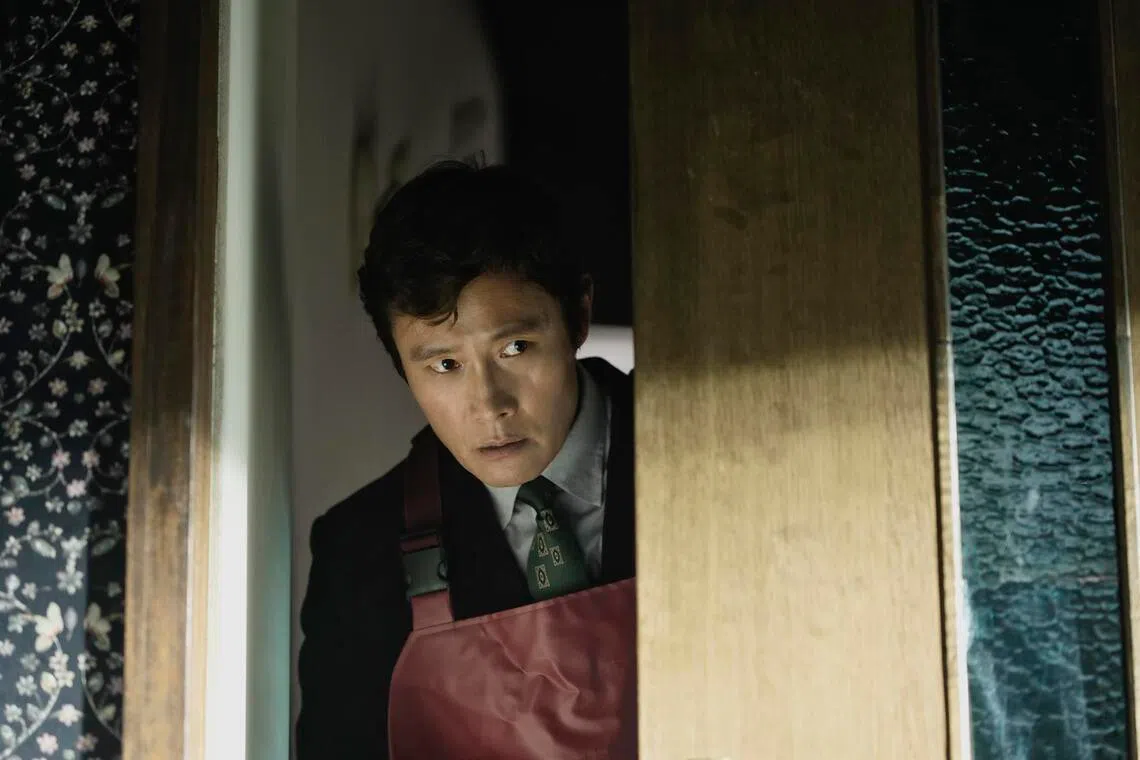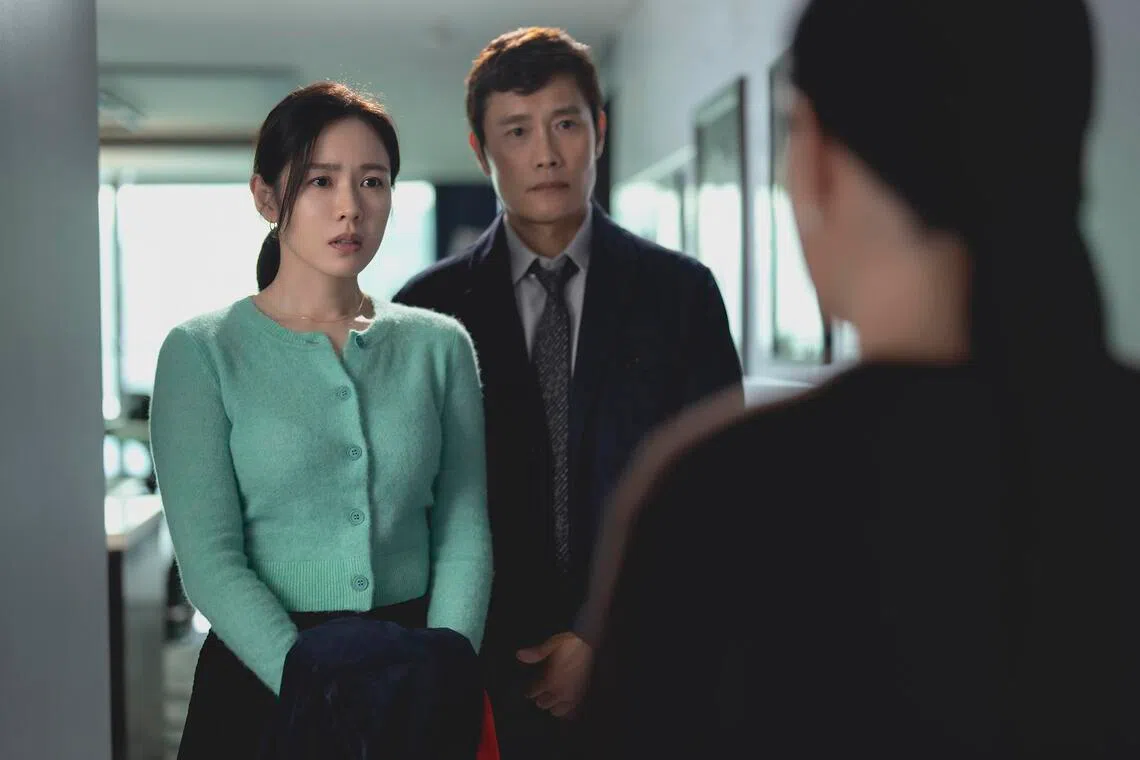At The Movies: Lee Byung-hun is brilliant as unhinged job-seeker in twisted thriller No Other Choice
Sign up now: Get ST's newsletters delivered to your inbox

Lee Byung-hun in No Other Choice.
PHOTO: GOLDEN VILLAGE
Follow topic:
No Other Choice (NC16)
139 minutes, opens on Oct 23
★★★★☆
The story: Man-su (Lee Byung-hun) has it all – a great job at a paper factory, a loving family and a beautiful house. But his 25 years of devotion mean nothing to his bosses, who retrench him in a cost-cutting exercise. Seeing that the job loss has devastated her husband’s peace of mind, Man-su’s wife Mi-ri (Son Ye-jin) offers emotional and practical support. Despite this, a desperate Man-su hatches a bloody plan to restore his family’s place in society.
Stories about decent folk turning to evil are compelling because who has not wished to take revenge on an unfair system?
Like Bryan Cranston’s Walter White in the award-winning series Breaking Bad (2008 to 2013), Man-su is an ordinary guy pushed to his limits and, like White, believes that a moral code is no longer a luxury he can afford.
South Korean film-maker Park Chan-wook takes American novelist Donald E. Westlake’s 1997 thriller The Ax’s starting point – a layoff – and turns it into a blackly funny, bitingly accurate satire about male vanity masquerading as family values.

Son Ye-jin (left) and Lee Byung-hun in No Other Choice.
PHOTO: GOLDEN VILLAGE
The Oscar-winning Parasite (2019) by South Korean director Bong Joon-ho satirised similar concepts, laid out in a similar heist-thriller format. Park’s tone, however, is darker.
Man-su is willing to go to places that the conniving, low-income family in Parasite will not. Parasite examined greed and the wealth gap; No Other Choice looks at the desperation of a breadwinner crushed by the loss of his status.
Without the trappings of rank and salary, he loses his self-worth and, worse, his identity. Regaining his masculinity will take an absurd level of violence.
The title is an ironic jab at the corporate machine that consumes people, then spits them out. It also refers to Man-su’s cognitive prison – he is unable to imagine a life for himself outside the machine.
He meets Si-jo (Cha Seung-won), an ex-paper industry man who has found joy and dignity as a shoe salesman. Man-su is disgusted by this, viewing Si-jo’s work as servile, blind to the fact that much of his own life has been spent as a servant before his master threw him out.
Park, one of South Korea’s most celebrated film-makers, once more shows why he is a master of tonal control. Precisely applied amounts of silliness undercut acts of extreme violence. Most admirably, the maker of thrillers Oldboy (2003) and Decision To Leave (2022) never loses control of the film’s moral compass, unlike Hollywood productions featuring villainous main characters.
Man-su is no cool anti-hero or swaggering avenger. He is a pitiable anachronism, believing in values swept aside by robotic factories and artificial intelligence.
And Lee (Squid Game, 2021 to 2025; Concrete Utopia, 2022) delivers a perfectly dialled-in performance as Man-su, a tragic figure too young to be made obsolete, but too old to change his ways.
Hot take: This savage satire skewers masculine vanity and corporate cruelty through the story of a laid-off man’s descent into violence.


